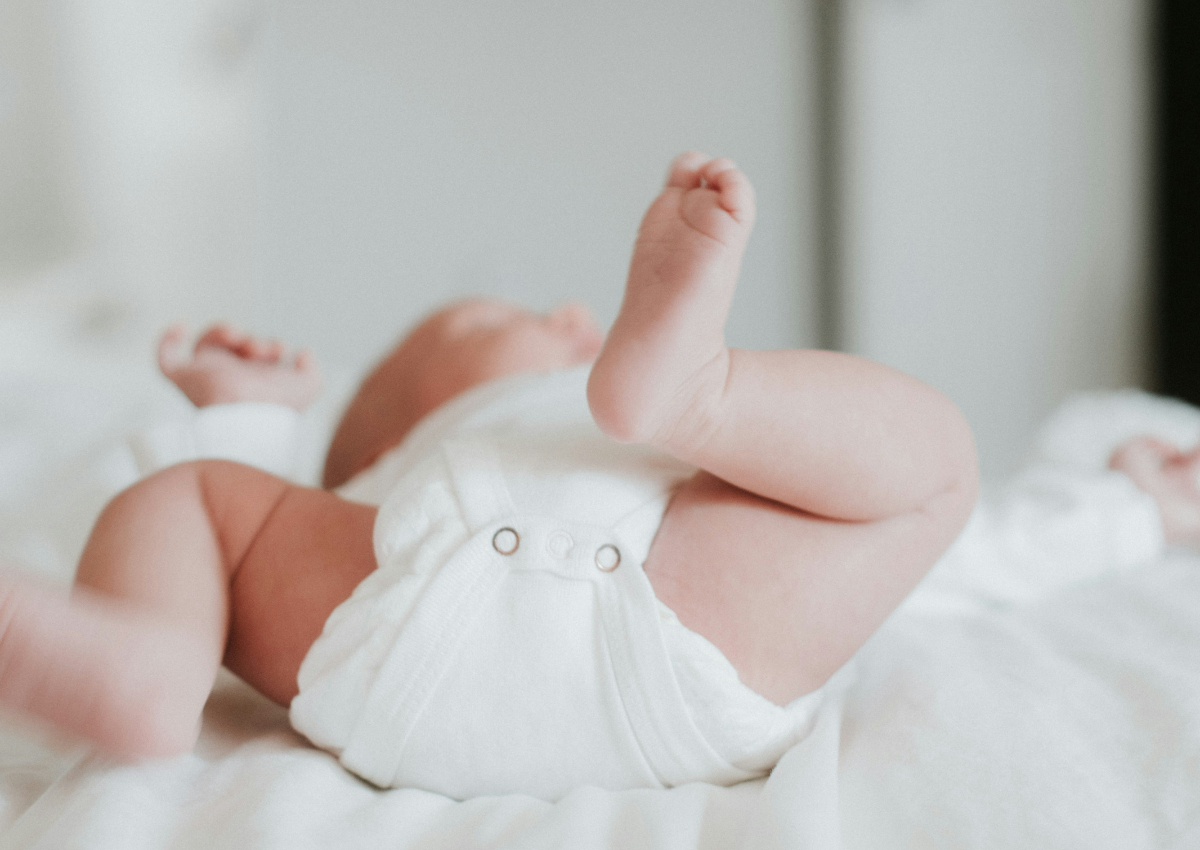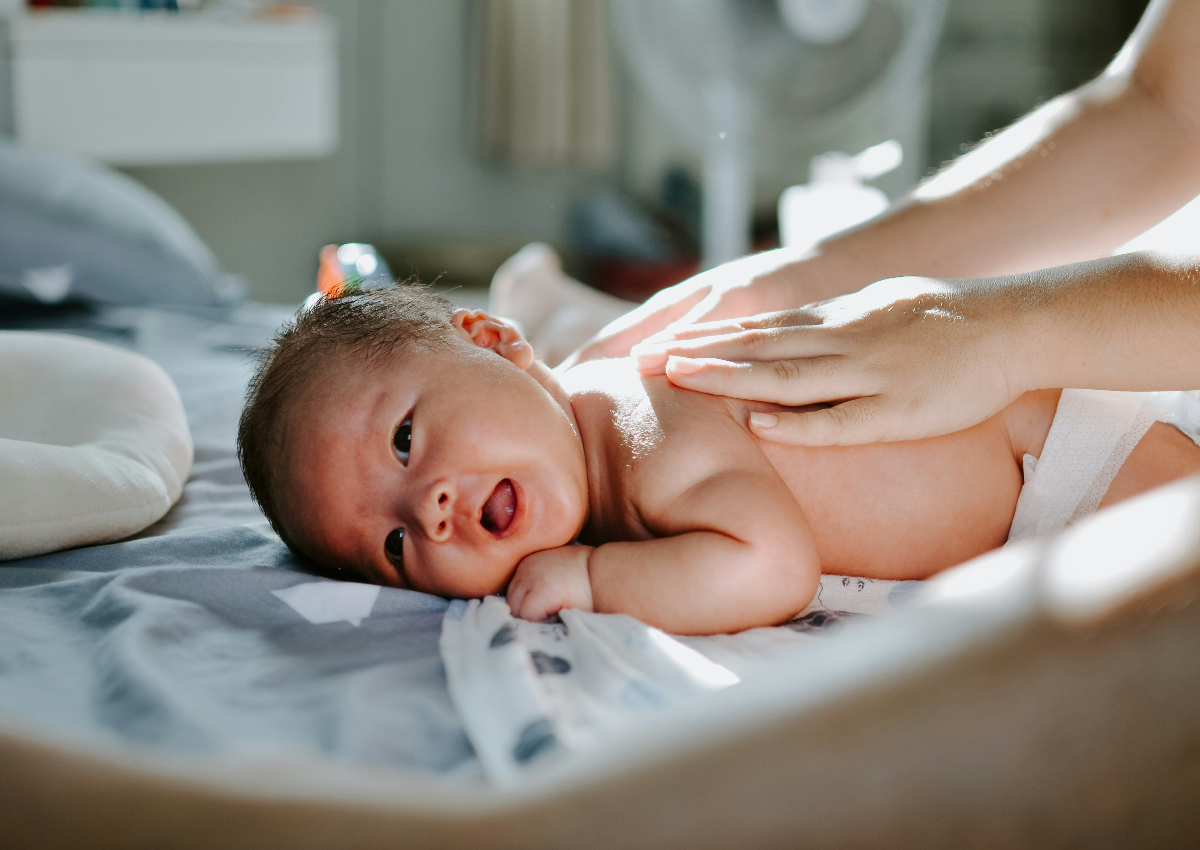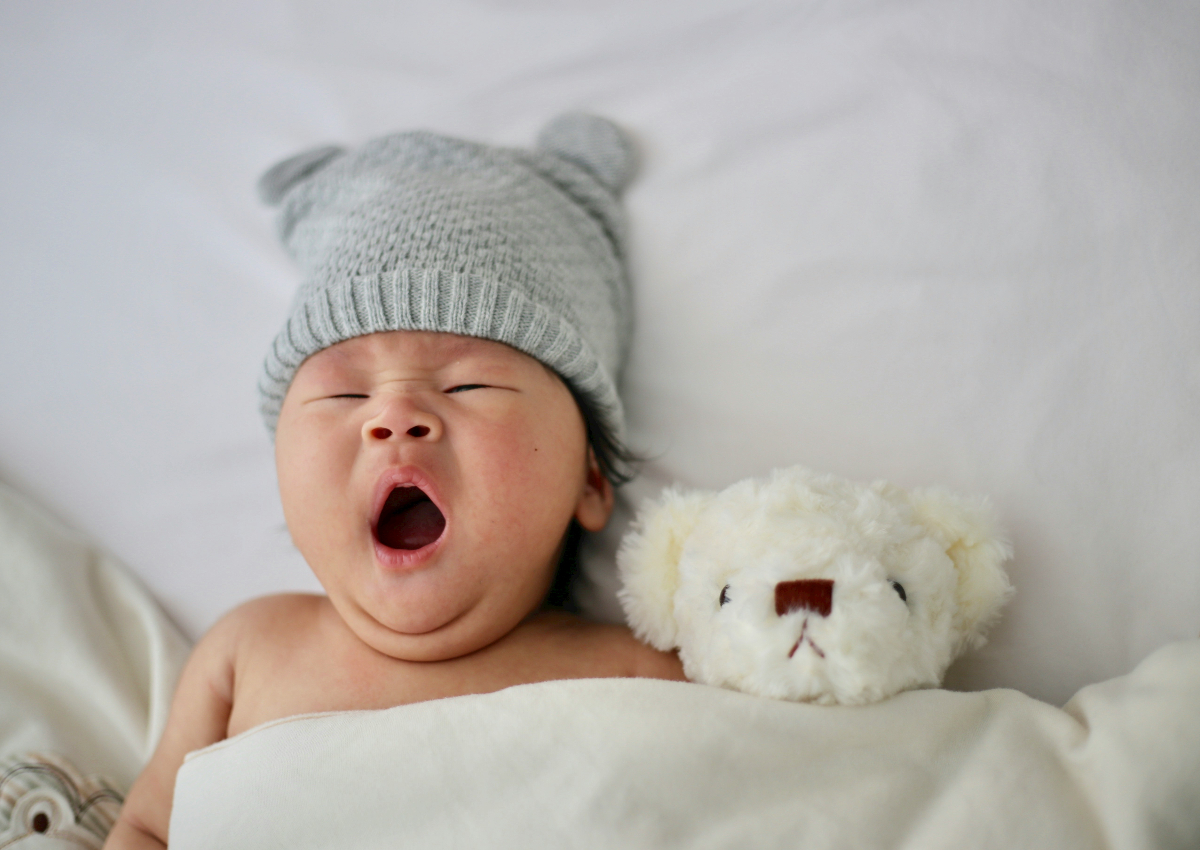Baby diarrhoea: Causes, warning signs and what to do about it

What does baby diarrhoea look like? What should I do if my baby has diarrhoea? How long is it okay and when should I worry about baby diarrhoea?
Feeding and changing — are perhaps the two primary concerns of most new parents. After all, babies are always hungry and soiling themselves. Thankfully, these are also signs of a healthy growing bub. However, yellow watery diarrhoea in babies is not a sign of good health.
A common concern for most parents, yellow watery diarrhoea can be a sign of infection and allergies. The baby may also need to be taken to the doctor if it doesn't stop. But worry not. There are a few things you can do to prevent this from happening.
Here's a helpful guide to take you through the signs and treatment of diarrhoea in babies.
Baby diarrhoea is a condition that causes a baby to have frequent watery stools. Some things, including illnesses and food sensitivities, can cause this diarrhoea.
Diarrhoea is one of the most common illnesses in babies and young children. Viruses or bacteria usually cause it in contaminated food or drink.
For example, babies who are breastfed are less likely to get diarrhoea than those who aren't breastfed because their mum's milk protects them against some germs.
Baby diarrhoea can appear differently from regular bowel movements. It's often more watery and can range in colour from yellow to green. The consistency might be loose and more liquid than usual.
Additionally, it can be more frequent than the baby's typical pattern. Keep an eye out for any changes in your baby's diaper contents, as well as any signs of discomfort, irritation, or dehydration.
It's not uncommon for babies to have loose stool, especially in the first six months of life. This is because their digestive system has yet to develop fully, and it takes them a while to get used to digesting.
However, if your baby's diaper is very watery, has mucus or contains blood, you should see your doctor immediately. These symptoms could be signs of a more serious condition like gastroenteritis or a blockage.
A baby's stool is usually much softer than a child's or an adult's. Breastfed babies tend to have softer and more runny stools than formula-fed babies.
But sometimes, the stool may seem watery or much looser than usual, along with an increased frequency of motions and quantity of stool. This is a sign of yellow watery diarrhoea in babies.
Some of the other common signs of yellow watery diarrhoea in babies include:
You may also notice vomiting, high fever, blood and discolouration in the stool, and tummy pain in children under six months. The treatments for any of these issues depend on how much your baby experiences diarrhoea.
While yellow watery diarrhoea in babies is common, baby diarrhoea can occur in various forms:
But why does this happen?

Several conditions may trigger diarrhoea in babies. The most common among them include:
Babies react and recover at different paces. Most children experience severe diarrhoea for about one or two days and then start to settle. Loose motions may continue for about a week after that.
If your baby has viral diarrhoea, it may take between four days and a fortnight to recover.
Dehydration is one of the most serious health conditions affecting your baby. However, it is fairly easy to recognise if you know what to look for.
Here are some signs that your child is dehydrated:

Have you ever been in a situation where your baby has diarrhoea but seems fine?
Well, you're not alone. As a parent, it can be tough to know what's normal and what isn't when it comes to your baby's poop. But there are some important things to keep in mind that will help ensure your baby is healthy.
First: if your baby is vomiting or lethargic or has any unusual symptoms like rash, fever, or difficulty breathing-these are signs that something might be wrong. You should take them to the doctor right away.
Second: if your baby has diarrhoea and seems fine, it could still be a sign of an underlying health issue. Baby diarrhoea can come from some causes, including viruses or allergies.
It could also be caused by parasites such as giardia or amoeba; this diarrhoea usually lasts longer than two weeks and can cause dehydration which is dangerous for babies who haven't yet reached six months old. It's best to talk with your doctor if you notice any changes in your child's bowel movements-especially if they've gone on for more than two weeks!
Diarrhoea and vomiting in your baby can be scary. But there are many reasons babies vomit and have baby diarrhoea, so you may be able to figure out what's causing yours without too much worry.
If your baby has been vomiting or has diarrhoea, it could be caused by any one of the following:
In most cases, children begin to poop normally without any treatment. Doctors generally avoid medicating unless it is necessary. However, in some cases, your doctor may advise:

What should I do if my baby has diarrhoea?
The causes, symptoms and treatments should help give you a clear picture of how to care for a baby with diarrhoea. However, here are some additional tips to help you manage baby diarrhoea better at home:
Your baby's diarrhoea can be concerning, but not every case requires immediate worry. Here are some instances when you should pay close attention and consider seeking medical advice:
Baby diarrhoea is rarely dangerous and can be managed well at home with just a few precautions. So don't worry too much about it, and ensure you maintain a hygienic and clean environment at home. Consult your doctor, and keep a close watch on your little one.
ALSO READ: Where is sugar hiding in your child's staple foods?
This article was first published in theAsianparent.